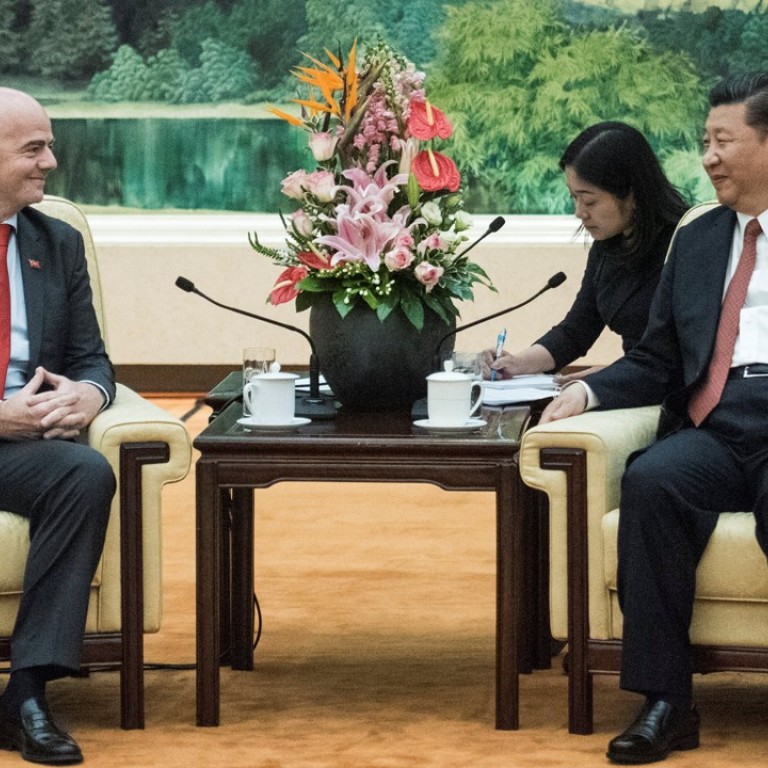
What was on the agenda when the two most powerful people in world football met in Beijing?
Was the meeting between President Xi Jinping and Fifa’s Gianni Infantino simply symbolic, or a sign of things to come?
A meeting between arguably the two most powerful men in world football just took place. Their impact could be so pervasive over the next two or three decades that this meeting may profoundly change the balance of power across global football. At the very least, these two men are likely to shape what happens between now and 2030.
China’s President Xi Jinping and Fifa’s president Gianni Infantino were the two men in question, their meeting having taken place at the Great Hall of the People in Beijing. The choice of venue was telling, as the Great Hall is used for legislative and ceremonial activities by the Chinese government and the ruling Communist Party. Indeed, the view from China seems to have been that the meeting’s symbolism, rather than its content, was the most striking feature of Xi and Infantino’s encounter.
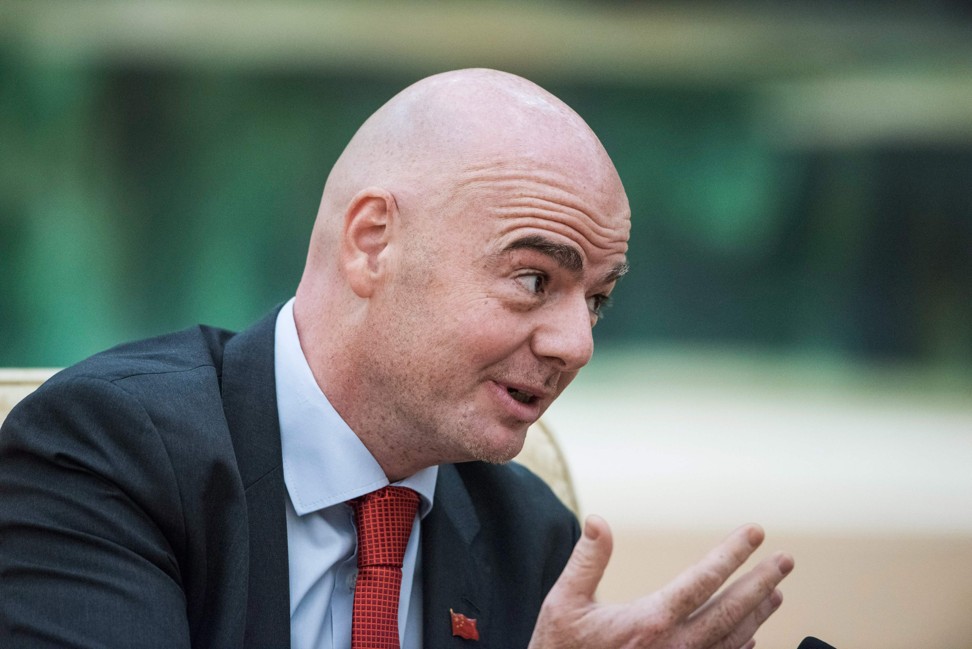
Infantino may therefore have simply dropped by Beijing to say ‘thanks’, although a post-transaction courtesy call is unlikely to have been the principle motive for his visit to the Great Hall.
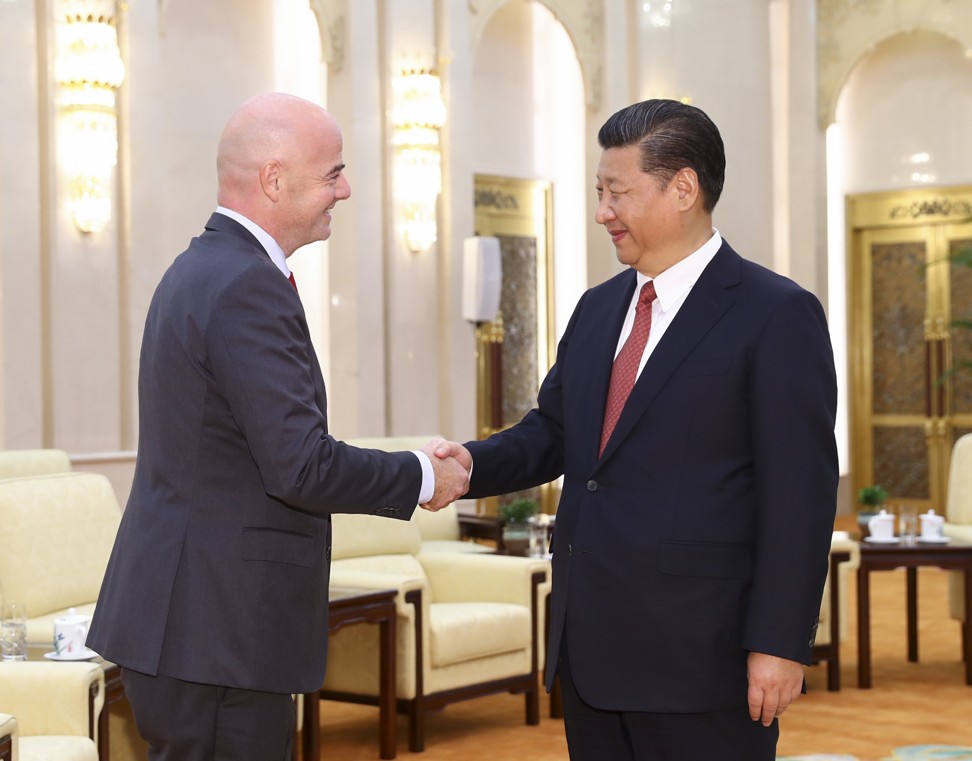
The World Cup was presumably the elephant in the room. China wants to host the tournament and, probably, Fifa wants to award the tournament to it. There are two years which are likely candidates for the World Cup heading east: 2030, coincidentally when Wanda’s sponsorship deal comes to an end, and 2034. If Wanda’s deal is to be renewed and provide China with an appropriate return-on-investment, one suspects China will be the World Cup’s host in one of these two years. Yet there are other matters on China’s football agenda that will surely be discussed with Fifa in due course.
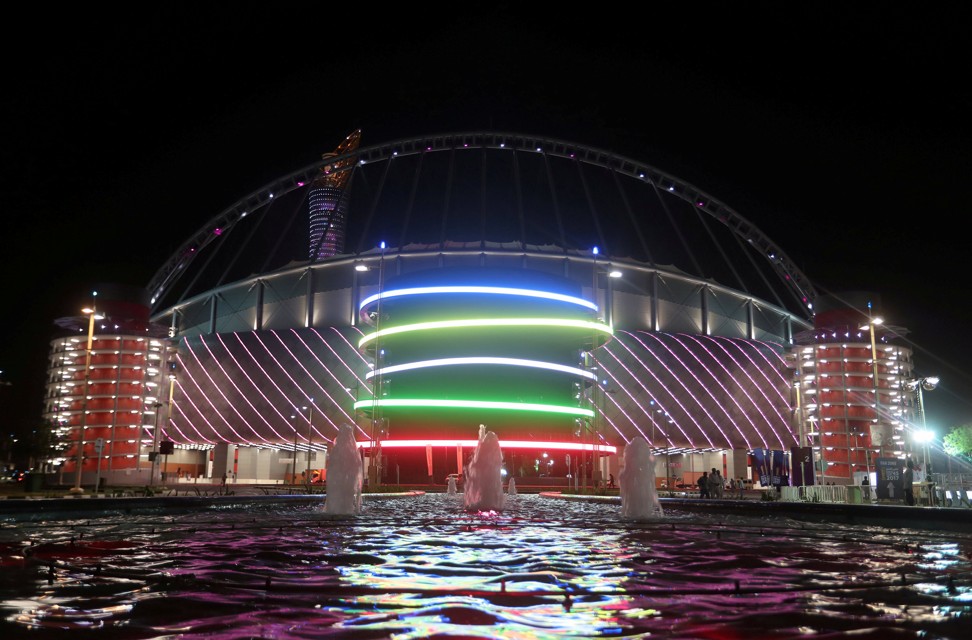
Fifa’s Confederations Cup event in 2021 is also probably up for grabs; the 2022 World Cup in Qatar has already been rescheduled from June to December, as the country will otherwise be too hot to host the competition. This move has already caused a great deal of consternation among football’s domestic governing bodies across the world. The Confederations Cup normally takes place in June, which therefore poses the same climatic challenges as the 2022 World Cup does. Any attempt to move it to an earlier or later slot in the year would be hugely contentious, so it is likely to remain where it is. One suspects that China is already being constructive in the support it is providing to Fifa as the organisation seeks a solution to the problem.
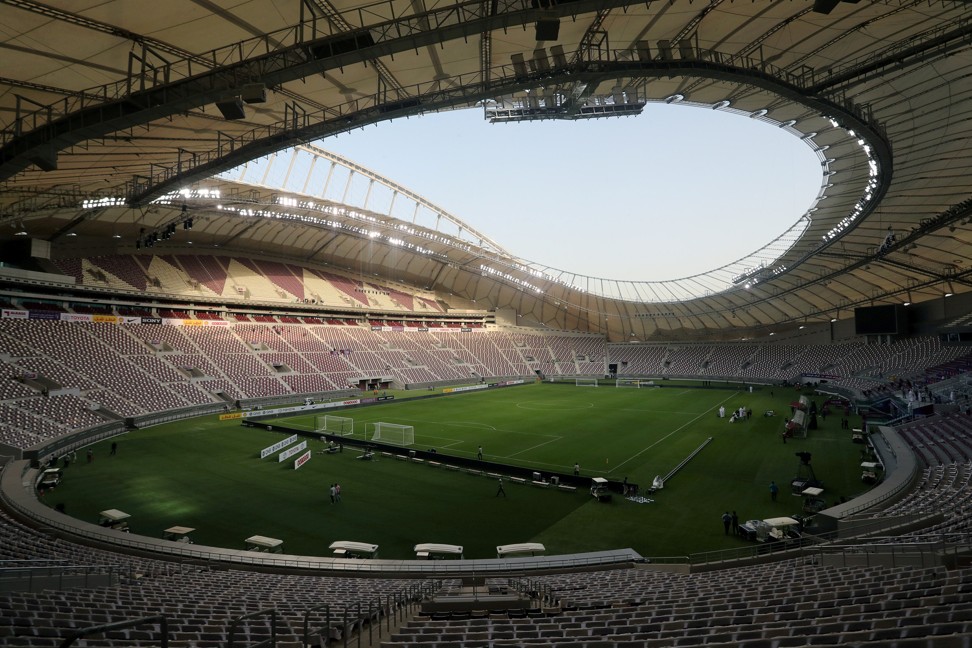
China has maturing relations with Qatar, symbolised by the two countries’ agreement to jointly build the stadium that will stage the final in 2022. Furthermore, Qatar is party to China’s ‘Belt and Road’ initiative. As such, China is unlikely to want to antagonise its Middle Eastern partner. Instead, it may see difficulties among Gulf Cooperation Council members as a chance to mediate and to provide a safety net. This would be a win-win for Beijing, from which it could emerge either as the country that helped negotiate a settlement and saved 2022, or else as the ‘helpful’ partner that rescued its allies, Qatar and Fifa, from an impending crisis by hosting the tournament.
At the next meeting between Xi and Infantino, it also seems likely that the former will remind the latter of China’s plans to have 70,000 football pitches and up to 50 million school children playing football by 2020. These breathtaking numbers are in one sense a mere footnote to the power-plays China is now making across world football. In another sense though, such children will form the basis for the squad that Xi ultimately hopes will win the World Cup.
This piece is published in partnership with Policy Forum.net, a blog at the ANU Crawford School of Public Policy

